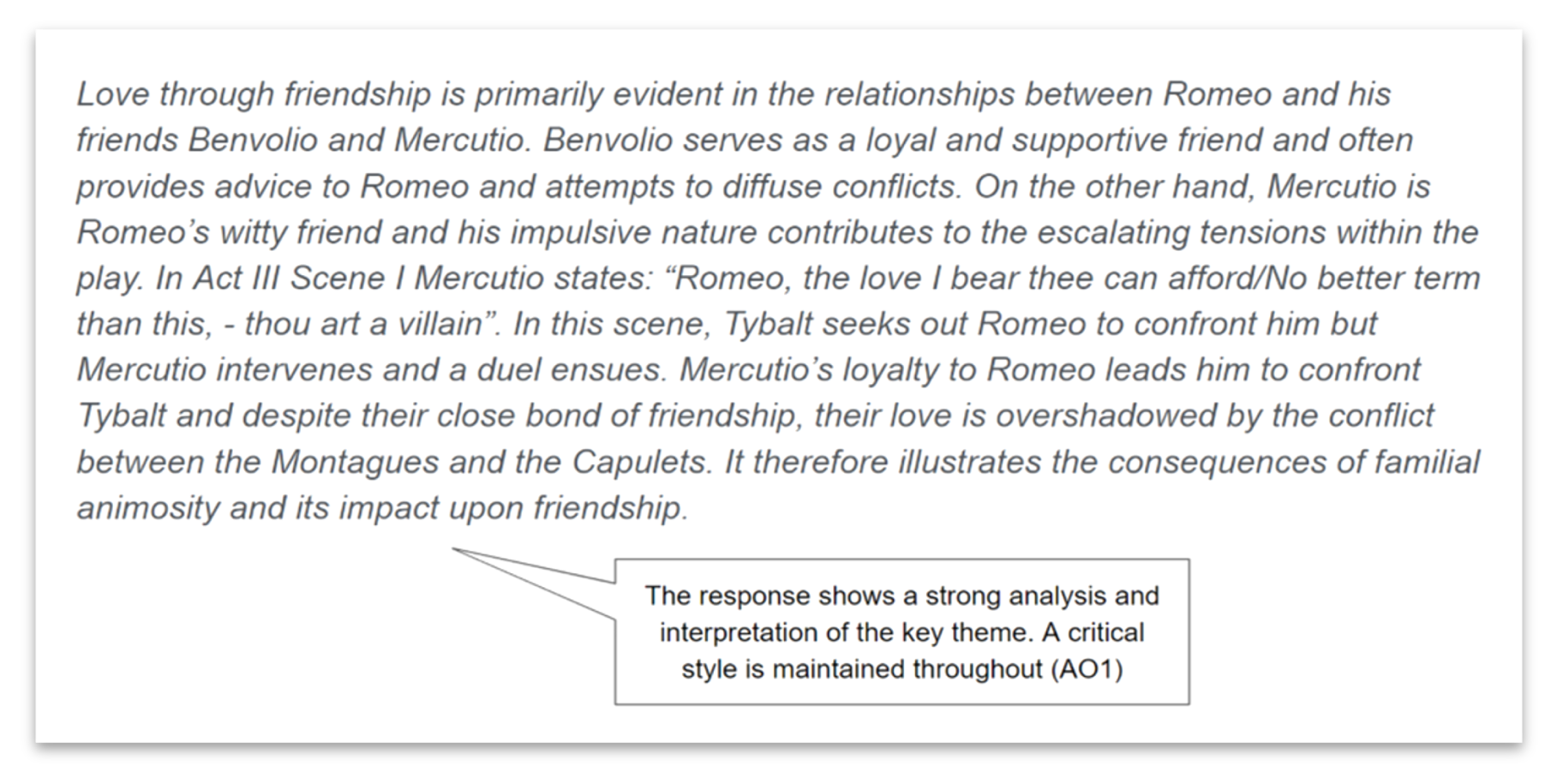The following task is based on Romeo and Juliet. However, the commentary is designed to highlight how to structure your response and integrate all aspects of the assessment objectives, and therefore the model could be applied to any of the Shakespeare plays.
In part (b), you need to draw on your knowledge of the text and give examples from elsewhere in the play. You must also make links to the context in which the play was written.
We will now explore how you can create an informed and coherent argument using an example of a question from part (b). Read through the question below:
|
Question:
Part (b)
Explain the importance of love elsewhere in the play.
|
We will now explore how you might structure a response for this question. To begin with, you should consider how you might support or challenge this proposition. This is shown in the table below:
|
Question focus
|
Importance of love elsewhere in the play
|
|
Topic sentence 1
|
The romantic love between Romeo and Juliet is portrayed as pure and idealised and Shakespeare uses it as a symbol of hope and unity amid the discord between both families.
|
|
Analysis
|
In Act I Scene V, in the quotation, “Did my heart love till now? Forswear it, sight!/For I ne’er saw true beauty till this night”, Shakespeare expresses the transformative power of love and suggests that Romeo had never truly experienced deep love until he laid his eyes on Juliet. Romeo comes to the realisation that his prior experiences of love were superficial in comparison to the love he now feels for Juliet.
|
After dealing comprehensively with one point, develop your argument by starting another paragraph (with a topic question) that also relates to the question:
|
Question focus
|
Importance of love elsewhere in the play
|
|
Topic sentence 2
|
Familial love is depicted as both a source of support and conflict through the Montague and Capulet families and the deep-rooted animosity and hatred between the two households serves as a major obstacle to the love between Romeo and Juliet.
|
Analysis
|
The feud creates an environment of hostility and tension and directly influences the choices and actions of the characters within the play. This conflict illustrates the destructive power of familial discord and its ability to overshadow other forms of love. In contrast, the love of parents for their children is also evident in the play. Both Lord and Lady Capulet, as well as Lord and Lady Montague, express worry and concern for the well-being of their children.
|




